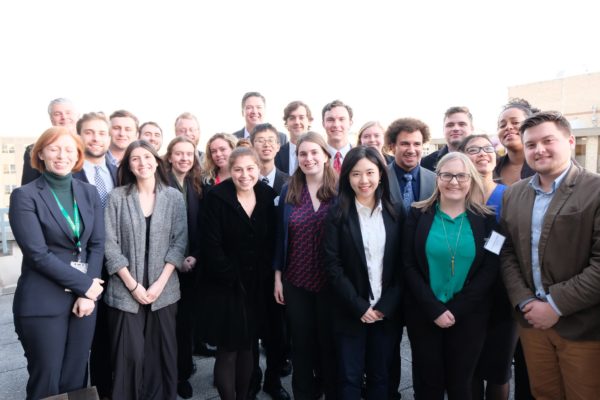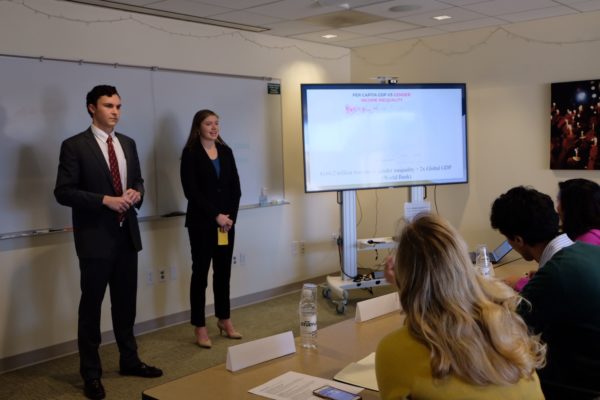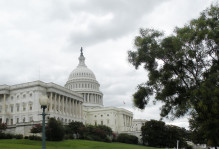Principals vs. Principles (Final Day)
I must say I’ll miss the Metro. The 7000 series was by far my favorite, with its tile-esque floors and electronic updates of stops ahead. After a bit of research, I’ve learned it is slowly replacing the more outdated 2000 and 6000 models. Perhaps commuting will be the sought-after mode of transportation in the near future.
Our final class, our final ride into D.C., was Thursday. We began with Policy Briefings, the major group assignment presented to actual policy practitioners. For weeks we have been preparing for those six minutes of speaking, followed by eight minutes of questioning. My amazing partner, Madeline Walker, and I presented on gender equality in politics. Using Rwanda’s historic GDP growth post-genocide, we portrayed equal political participation as a long-term solution to many of a developing country’s woes. As President Trump has already cut funding from certain UN programs, we recommended a new partnership between the United States and the Women’s Equal Political Participation initiative of the UN’s Development Programmes. If Congress doesn’t approve the reallocation, perhaps Ivanka will help us out.
In closing, our last speaker was former FBI Director James Comey, whose piece was appropriately called “Principals vs. Principles”. For two hours, now-William & Mary Professor Comey spoke with us on how guiding principles have affected his career, from a student at the university to Deputy Attorney General to General Counsel for Lockheed Martin to more. He was very much in-line with Principal-Agent Theory, our overarching theme for the Foreign Policy course. Almost no better media-circus story has ever been more representative of the PA relationship than President Trump’s firing of his FBI Director. We wondered, within that framework, how much oversight does the President have over the country’s top law enforcement agency?
The “Foreign Policy: International Development and Security” Winter Seminar was a phenomenal look into the world’s shifting perception of multilateralism. As “us first”-centric political platforms are promoted on many continents, country-to-country dynamics change. I am incredibly grateful for the opportunity my parents and William & Mary afforded me to attend this class. Every student walked away with a greater understanding of development and security’s inner workings. Studying in D.C. in the middle of a government shutdown also left us with reflective questions to mull over. I feel confident in knowing many wonderful individuals work inside and outside of our federal government (some 17,000 are W&M alumni). Over the past 10 days and throughout 2019, our class will join them in wondering ‘how do new political movements change future foreign policy?’
Go Tribe,
Caleb T. Rogers ’20
P.S. A common question of mine this week was along the lines of “what books have shaped your thinking?” Below is a compiled book list of our panelists’/speaker’s answers. Enjoy!
Restraint – Barry Posnan, Hell of Good Intentions – Steve Wolf, Duty – Robert Gates, A Message to Garcia– Elbert Hubbard, “Read think tanks (KATO, Brookings, Council of Foreign Relations)”, Poor Economics – Abhijit Banarjee, The White Man’s Burden – Kipling, Jeffrey Sacks (author), The Fifth Risk – Michael Lewis, Rinold Nieber (author), and “Letter from a Birmingham Jail” – Martin Luther King Jr.





No comments.
Comments are currently closed. Comments are closed on all posts older than one year, and for those in our archive.